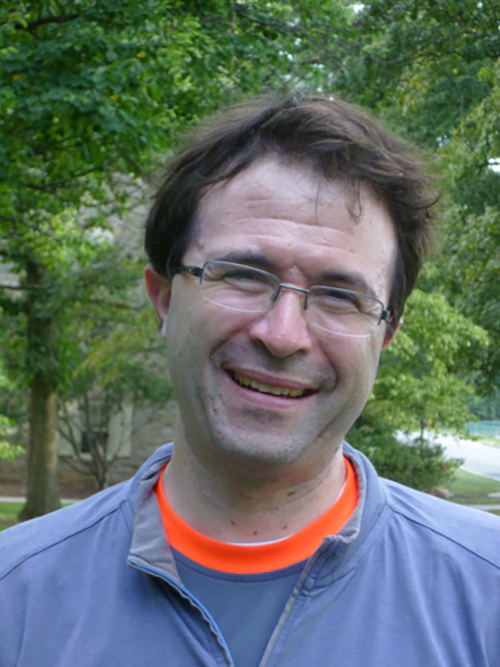Meet Assistant Teaching Professor of Physics Jesse Goldman, PhD
November 23, 2021
Jesse Goldman received his PhD in experimental high-energy physics in 2000 and, following post-doctoral research on neutrino oscillations, turned his focus to physics teaching. While teaching in the physics and astronomy department at CPSU San Luis Obispo, he became interested in observational cosmology, cosmic strings and cosmic rays—topics which meld well with introductory physics teaching and undergraduate research.
His passion for teaching and learning took him subsequently to teaching posts at the National University of Singapore, the University of Hawai’i at Hilo and, more recently, at Haverford College, Saint Joseph’s University and Kohelet Yeshiva High School where he gained experience as an Advanced Placement faculty member in Physics and Calculus studying secondary-to-tertiary transitional teaching methods.

Degree: PhD, Physics, Kansas State University
Research Interests: Neutrino Physics, Observational Cosmology, Cosmic Rays
Hometown: Berkeley, California
What did you do before coming to Drexel?
Since moving with my family to the Philadelphia area in 2015, I have taught physics at Haverford College and physics and introductory astronomy at Saint Joseph’s University and, in the two years prior to arriving at Drexel, physics, mathematics and computing at Kohelet Yeshiva High School in Merion.
What book, movie, show or podcast would you recommend?
I always recommend that people watch the The Prisoner, a British sci-fi series that aired on CBS in the mid 1960s. It has a lot of interesting things to say that are relevant in today’s society, particularly in the realms of education, science, medicine and sociology.
What is your favorite thing about Philadelphia?
The Navy Yard! We discovered it about a year after we moved here, completely by accident, and really love the quiet and secluded atmosphere with plenty of space for strolling and picnicking.
What did you want to be when you were a kid? What made you want to become a professor?
I knew that I wanted to be a teacher from the time I was in high school, but didn’t settle on physics until halfway through college. Growing up not far from the ocean in the San Francisco Bay Area, I’d originally had my mind set on marine biology but was inspired by my high school physics teacher to try physics and that idea stuck. Both of my parents were academics, and I think that their collective example encouraged me to become a professor.
What or who inspired you?
I think that my biggest career inspirations were my thesis advisor and the other faculty in the graduate physics department at Kansas State University. From them, I learned how to teach, how to think about complex problems, how to devise solutions to those problems and even how to manage a classroom. Their passion for teaching, learning and research inspired me in almost every aspect of my professional career.
Which current event/issue do you think students should know more about, and why?
I think that students should know more about how science policy and science funding are determined at the national, international and regional levels. I also think that they should understand how scientists determine what kinds of research deserves immediate priority and what kind of negotiation goes into those decisions.